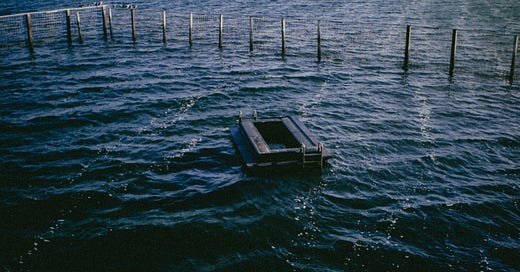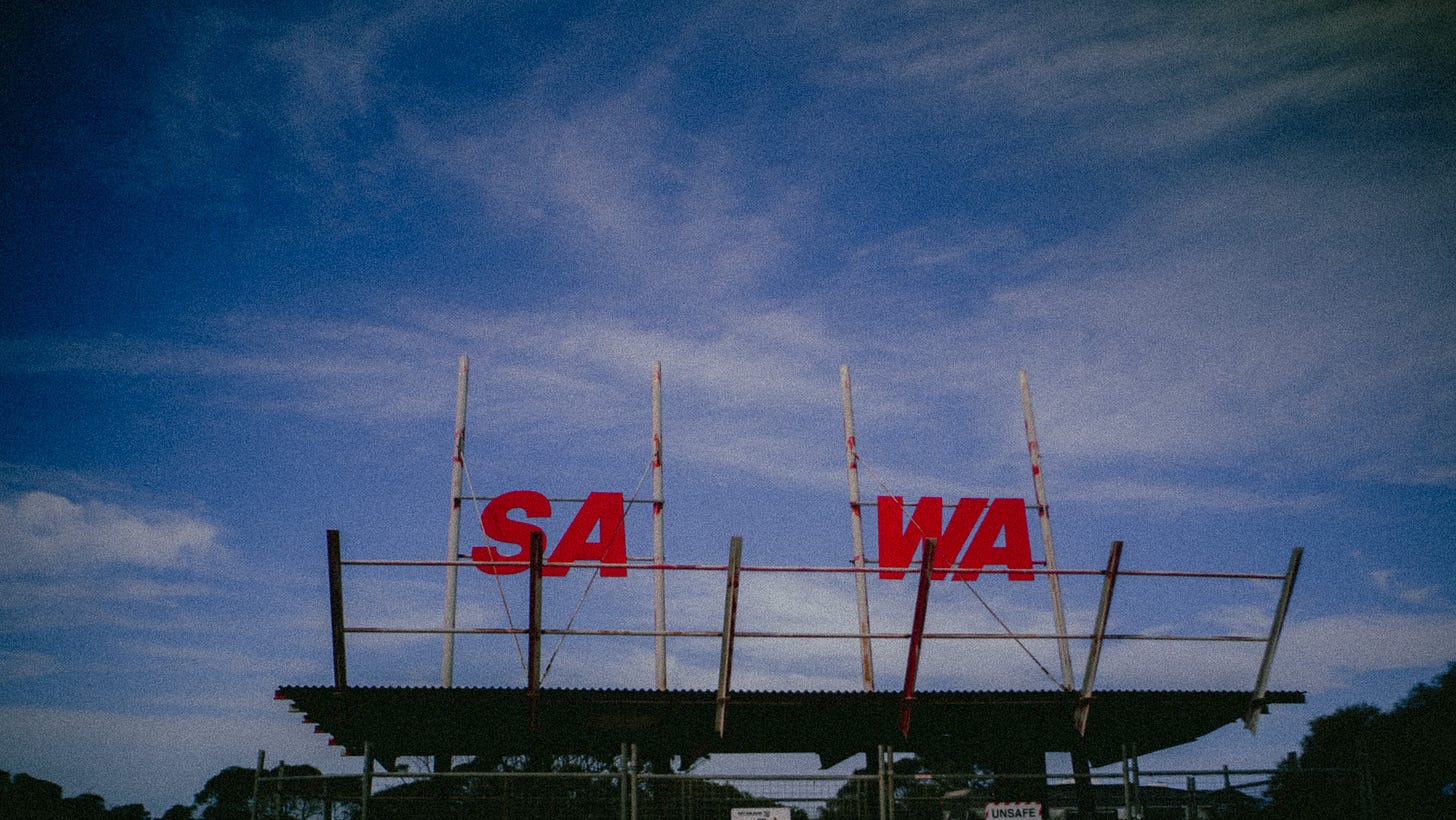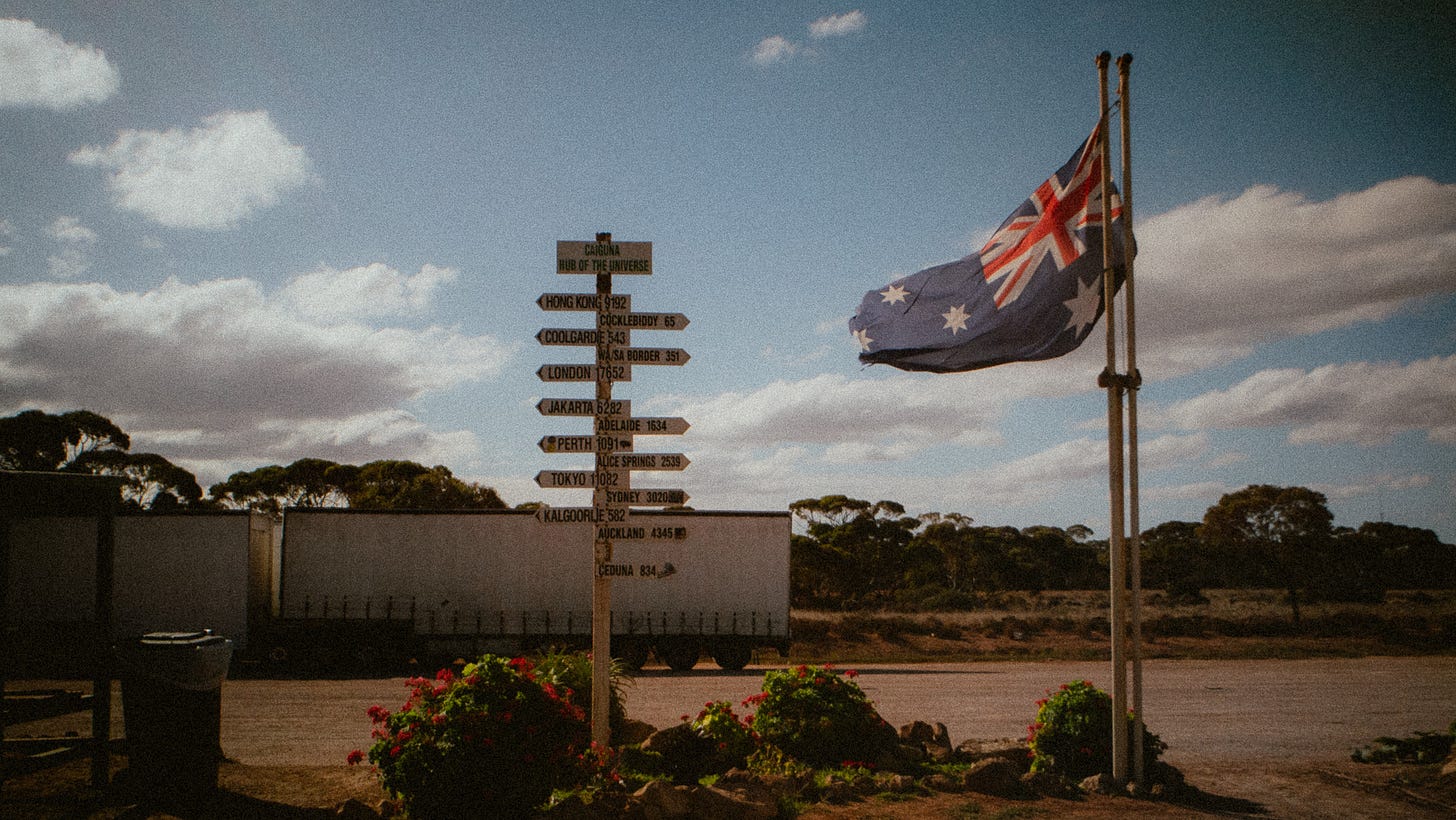“I guess I now find myself rather far from 'home', dwelling where sport scientists typically might not.”
Carl Woods & Keith Davids, 2024 [p 3]
I love this quote, but funnily enough, it resonates with me more now that I hold a job title that actually has ‘sports scientist’ in it.
It really makes me wonder what it is to be a ‘sports scientist’, because I find myself almost apologetically introducing myself. I’ve worked in high performance sports before, sure. But never with the explicit intention that is written on the walls and in long-term development plans and conversations that have been decades in the making.
I guess the overarching intentions align, and that’s why I want to be here: how far can we really go in our own spaces, in the performance environments we have fought to thrive in? Can we just keep going, posing problem after problem and systematically seeking to resolve them?
To me, that’s such a fascinating cascade of questions. Yes, it may boil down to “how many medals can we win” but is it perhaps possible to put that explicit thought aside? I guess I’m about to find out.
I was very reluctant to even apply for a job that is connected to high performance sport because it felt like this arbitrary manifestation of what a sport scientist is ‘supposed to be’.
As if my pre-existing work wasn’t really ‘real’ until I entered this domain. Its an undercurrent of a sentiment, and one I pondered for a month before the interview. Am I doing this because it is (perceived as) an expectation? That because I have the qualifications on paper and most people dream of being here, that I should not waste this opportunity? Am I going into this for the right reasons, whatever they may be?
I think the notion of potential irked me the most, and I’ve written about this before in the context of talent development - but seeing it reflected so well in the direct experience of being a sport scientist was even better.
I know there is infinite value in the work I’ve done before, and the transferability comes in the subtlety of learning to connect with others, growing knowledge together, communicating with an open heart and mind, and leading with curiosity. But I also like to think of this as a bit of a defining moment, a stage name almost, where I can craft my ways of working in new ways to meet this new environment.
If I am not where a sport scientist is 'supposed' to be, then some may think me considerably lost, stumbling through places that are somewhat unfulfilling relative to my potential as a sport scientist. [p 3]
I don’t think I was lost, and renouncing the concept of potential has definitely meant that I found fulfilment in different ways, but as I’ve pondered before through the wall I keep headbutting and the horcrux I created, my biggest challenge is connecting through the cloud of apathy and ‘trying my best’. In a way, I haven’t really changed what I do too much - I love to support others, to help them venture into spaces they may have never discovered alone, to make sure they never feel like this must be done without support.
Whether that be coaches or support teams or athletes themselves, I think the sentiment stands. And regardless of whether its a parent reluctantly stepping up to coach their child’s team or an international-level coach who has dreamt of a career in this space… they still have hearts and souls and minds and histories and futures unfolding in untold ways. After years of trying to join with people who were ‘too busy to care’, surely being alongside people who have time to care will be easier… right? (I can’t wait to laugh at this line in a later post).
Such a voyage is better understood, not of fulfilling my potential as a sport scientist, but of continually finding my way, creatively improvising a path ahead while guided by experiences undergone. [p 4]
I think just being aware of this opportunity to creatively improvise a path ahead is a great place to start. By keeping my attention on its unfolding, rather than cementing processes and systems in place that will not yield when they inevitably need to change or respond, I can keep my eyes ahead and ears open and mind clear. I can hold space to ponder what this moment really needs, what people aren’t saying, what’s missing from the space or what is too loud. I’m now starting to notice that this train of thought is not common, and that’s precisely my power.
I’ve also been drawing inspiration from anything and everything I interact with, and most recently I finished watching the latest season of the Rings of Power. If you haven’t seen it already, I should probably warn you of the spoilers ahead.
My little pattern recognition gremlin of a brain recognised Gandalf immediately, I don’t think they tried to hide it at all. The journey to receive his name and his staff, to earn it, was absolutely gorgeous. There are so many layers to the stories in the Lord of the Rings, but there was one line in this prequel that I wanted to echo.
As Gandalf encounters someone else who knows magic, they discuss it as a ‘secret fire’. He’s struggled to connect with this power so far, and every time he tries to use it, he loses control and risks hurting those around him. So when the quote below is delivered, it’s like a slap to the face:
What would the secret fire have to do with you as a master?
But how can I use it without mastering it?
Follow me, I will show you.
Sorry, just scroll back up and read that again because it bears repeating. It was said so gently, in passing, a fireside conversation that made the characters on-screen (and off-screen) pause for a moment.
What would the secret fire have to do with you as a master?
Nothing. You are not its master, you can never be. What a pointless intention, and a perfect medium to share that message. I love the way this tangles with the idea that our science could somehow pretend to master the secret fire that is our drive to become better. It plays into the notion of potential fulfilment too, that chasing a pre-determined outcome may mean we miss the moment entirely and close ourselves off from the world rather than opening up to it.
As I stumble through this unfolding path that would not have appeared to me without some guidance, love, support and a few forceful (and kind) phone calls to remind me that I can do this, I want to keep this quote in mind. No masters, but many guides. I have the most incredible people to follow, by my side and virtually. In every corner of every office that I am in, every pitch or velodrome or track I find myself at, and tethered to every line of every paper, text message, wednesday waffle video and poem.
It’s these tethers that mean more than any version of what becoming a sport scientist is ‘supposed to be’.
Welcome to the new chapter.
Curious about how the drive from Perth to Brisbane went? Check it out here!








Good luck with the new venture, Alex.
I know you will find a “way”!